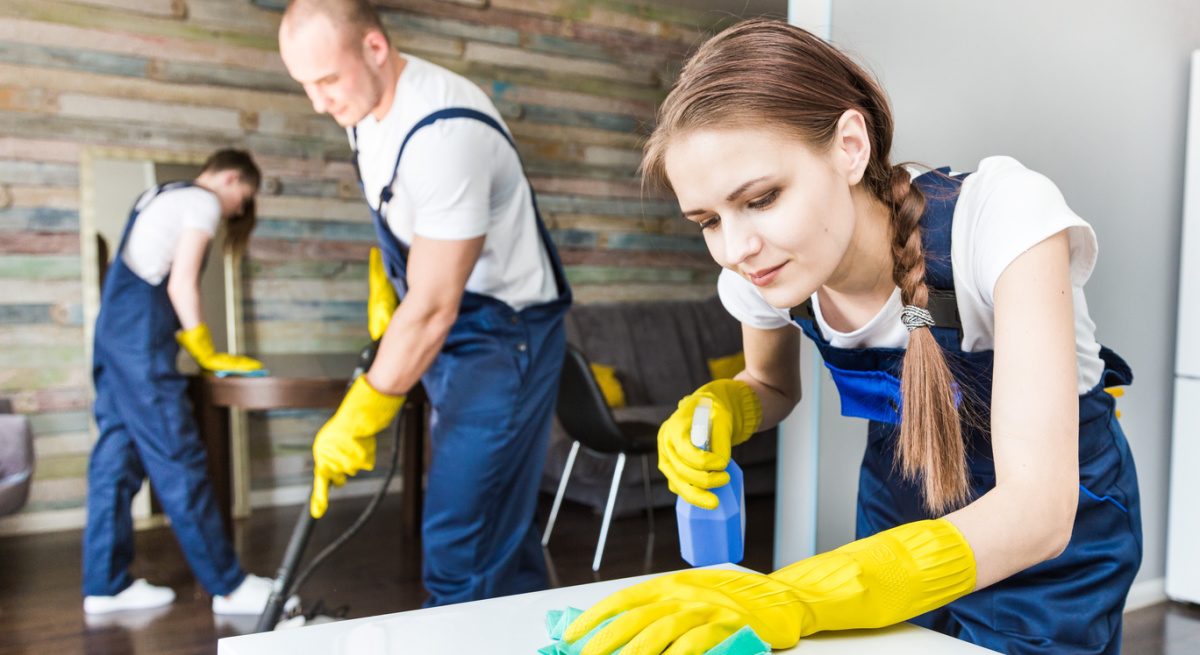
As a restaurant owner or manager, maintaining a clean and sanitary establishment is crucial for not only providing a pleasant dining experience for customers but also for adhering to health code regulations. Health code violations can result in costly fines, legal penalties, and damage to your reputation, so it is essential to take preventive measures to ensure your restaurant meets all health and safety standards. Here are some tips on how to prevent restaurant health code violations through proper cleaning.
Train staff on proper cleaning techniques
It is essential to train all staff members on proper cleaning techniques, including the use of cleaning chemicals, disinfectants, and sanitizers. Ensure that all employees understand the importance of maintaining a clean and sanitary environment and provide them with the knowledge and tools they need to effectively clean and sanitize all surfaces and equipment. Regular training sessions can help keep staff updated on the latest cleaning techniques and ensure that everyone is on the same page.
Use proper cleaning supplies
To effectively clean and sanitize your restaurant, it is important to use the right cleaning supplies and equipment. Invest in high-quality cleaning products that are specifically designed for food-service environments and ensure that all surfaces, including countertops, tables, chairs, and floors, are cleaned and sanitized regularly. Make sure that you have the necessary supplies on hand, including cleaning chemicals, sponges, paper towels, and disinfectants.
Implement a cleaning schedule
Developing a comprehensive cleaning schedule is critical for maintaining a clean and sanitary restaurant. Identify the areas that require daily, weekly, and monthly cleaning and create a schedule that ensures that all surfaces and equipment are cleaned and sanitized regularly. Assign tasks to specific staff members and provide them with the necessary supplies and equipment to effectively clean and sanitize their designated areas.
Keep the kitchen and dining area separate
The kitchen and dining area should be kept separate to prevent contamination of food and surfaces. Establish strict rules for staff to follow, such as requiring them to wash their hands before entering the kitchen and preventing them from eating or drinking in the kitchen or food prep areas.
Store food properly
Proper storage of food is crucial to preventing health code violations and maintaining food safety. All food should be stored at the appropriate temperature to prevent spoilage and contamination. Use thermometers to regularly check the temperature of refrigerators and freezers, and ensure that all food is properly labeled and stored in airtight containers.
- Regularly check and maintain equipment
Regularly checking and maintaining all equipment is essential for ensuring its proper functioning and preventing health code violations. Ensure that all appliances and equipment, such as refrigerators, freezers, ovens, and stoves, are regularly cleaned and sanitized and that all necessary repairs are made promptly.
Conduct regular inspections
Regular inspections of your restaurant can help identify potential health code violations and prevent them from becoming major issues. Assign staff members to regularly inspect all areas of the restaurant, including the kitchen, dining room, and bathrooms, and document any issues that arise. Address any issues promptly and take the necessary steps to correct them to ensure that your restaurant continues to meet all health code regulations.
In conclusion, preventing health code violations in a restaurant requires a comprehensive approach to cleaning and maintenance. By training staff members, using proper cleaning supplies, implementing a cleaning schedule, separating the kitchen and dining area, storing food properly, regularly checking and maintaining equipment, and conducting regular inspections, you can ensure that your restaurant meets all health code regulations and provides a safe and enjoyable dining experience for your customers.
Many food establishments fail to meet health regulations on cleanliness due to failures in daily cleaning tasks. Tasks in this category are sensitive and failing to execute them compounds the resulting mess. Areas that come into direct contact with dirt should be cleaned on a daily basis. Some of these areas will require to be cleaned more than once in a day when they become dirty. Daily cleaning tasks include:
- Wiping down the walls to clear them of splashes
- Floors.
- Countertops
- Disinfecting food preparation areas
- Wiping the electronic appliances to remove spills from food and prevent accumulation of dirt.
- Cleaning beverage dispenser heads and bottle openers.
- Wash the crockery and utensils and leave them to dry.
- Clean rags, aprons, towels, and uniforms.
- Replenish the soap dispensers and paper towel rolls.
- Remove waste material and recycled products from the kitchen store.
- Disinfect the waste disposal area and the waste bins




